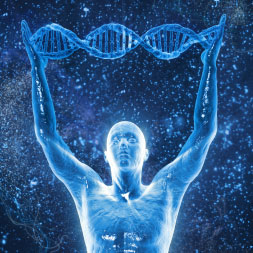Online courses directory (423)
Roles of neural plasticity in learning and memory and in development of invertebrates and mammals. An in-depth critical analysis of current literature of molecular, cellular, genetic, electrophysiological, and behavioral studies. Discussion of original papers supplemented by introductory lectures.
This course deals with the application of structure and theory to the study of organic reaction mechanisms: Stereochemical features including conformation and stereoelectronic effects; reaction dynamics, isotope effects and molecular orbital theory applied to pericyclic and photochemical reactions; and special reactive intermediates including carbenes, carbanions, and free radicals.
This is a laboratory course supplemented by lectures that focus on selected analytical facilities that are commonly used to determine the mineralogy, elemental abundance and isotopic ratios of Sr and Pb in rocks, soils, sediments and water.
An advanced course covering anatomical, physiological, behavioral, and computational studies of the central nervous system relevant to speech and hearing. Students learn primarily by discussions of scientific papers on topics of current interest. Recent topics include cell types and neural circuits in the auditory brainstem, organization and processing in the auditory cortex, auditory reflexes and descending systems, functional imaging of the human auditory system, quantitative methods for relating neural responses to behavior, speech motor control, cortical representation of language, and auditory learning in songbirds.
This course is for upper-level graduate students who are planning careers in computational neuroscience. This course focuses on the problem of supervised learning from the perspective of modern statistical learning theory starting with the theory of multivariate function approximation from sparse data. It develops basic tools such as Regularization including Support Vector Machines for regression and classification. It derives generalization bounds using both stability and VC theory. It also discusses topics such as boosting and feature selection and examines applications in several areas: Computer Vision, Computer Graphics, Text Classification, and Bioinformatics. The final projects, hands-on applications, and exercises are designed to illustrate the rapidly increasing practical uses of the techniques described throughout the course.
Get a basic overview of microbiology before exploring advanced topics like bacterial cell morphology, nitrogen fixation and protozoan diseases through this online Education Portal course, Biology 103: Microbiology. Watch our video lessons on STDs, bacterial diseases and foodborne illnesses as you prepare to earn real college credit through the Microbiology Excelsior Exam . Though the subjects covered in these lessons are somewhat intense, our experienced, knowledgeable instructors have kept the videos brief, engaging and easy to follow. You also can benefit from the multiple-choice quizzes and written transcripts that complement each video.
Gases behave differently from either solids or liquids, so there are different methods for understanding their behaviour. Having neither fixed volume nor shape gases are moulded entirely by the container in which they are held and from this it is possible to measure their behaviour by measuring properties such as pressure, volume, temperature and number of molecules. This free online chemistry course will introduce the concept of the ideal gas and the ideal gas law which is a good indicator of the behaviour of gases under many different conditions. The various components in the ideal gas law are explained in clear terms and you will see that by using equations you will understand how the impact of a change to one property, for example temperature, will impact on the other properties. Where there are multiple gases in a container you will be shown how to work out their partial pressure relative to the total pressure. This free online chemistry course will be of great interest to all students who wish to pursue a career in any of the sciences such as chemistry, physics, biology or geology, and to the individual learner who simply wants to learn and understand how gases behave.<br />
This course highlights the interplay between cellular and molecular storage mechanisms and the cognitive neuroscience of memory, with an emphasis on human and animal models of hippocampal mechanisms and function. Class sessions include lectures and discussion of papers.
5.33 focuses on advanced experimentation, with particular emphasis on chemical synthesis and the fundamentals of quantum chemistry, illustrated through molecular spectroscopy. The written and oral presentation of experimental results is also emphasized in the course.
Acknowledgements
The materials for 5.33 reflect the work of many faculty members associated with this course over the years.
WARNING NOTICE
The experiments described in these materials are potentially hazardous and require a high level of safety training, special facilities and equipment, and supervision by appropriate individuals. You bear the sole responsibility, liability, and risk for the implementation of such safety procedures and measures. MIT shall have no responsibility, liability, or risk for the content or implementation of any of the material presented.
Legal Notice
Other Versions
Other OCW Versions
Archived versions: ![]()

















